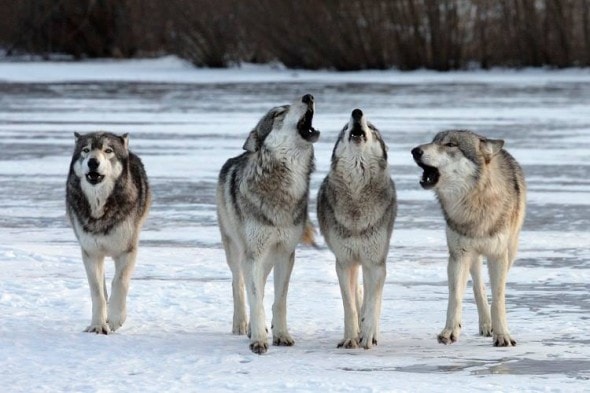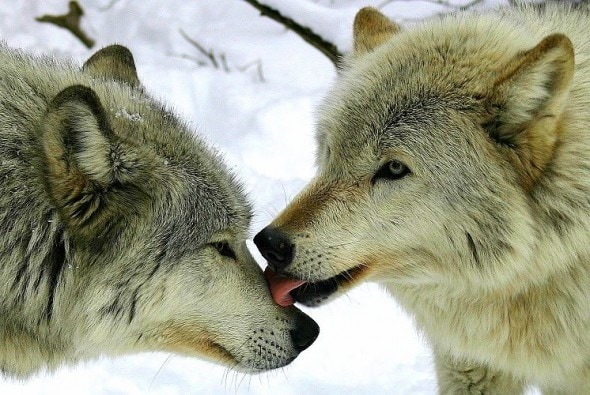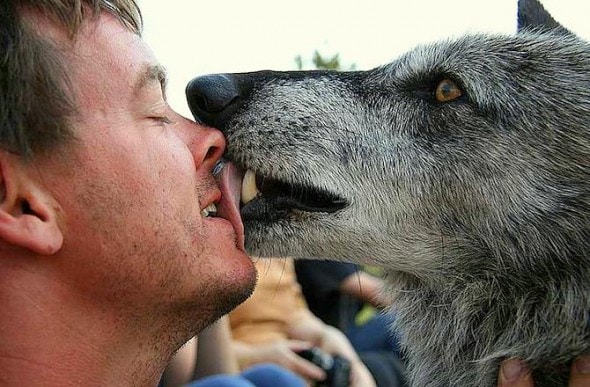A study was conducted on wolves and their behavior in relation to each other as a pack. What was found that the key to the wolves’ success in the wild has something to do with them having a built in tolerance that’s higher than seen with domesticated dogs.
According to lead author of the published report, Friederike Range, “Wolves cooperate more in terms of breeding, defending territories and probably hunting. Dogs are scavengers.”
Initially, the researchers were of the mindset that domestication had bred a higher tolerance in dogs. This made it seem like dogs were a better social partner for man. This new study rethinks that concept.
It’s now believed that wolves most likely already had the social skills. It really came down to a matter of losing their fear early man. Once the fear issue was eliminated, dogs became the obvious choice to aid in the survival early man.
The study also found another key difference between dogs and wolves. With a wolf pack, the higher ranking wolves seem to allow the lower ranking a bit more leeway when it comes to matters of hunting for food and territory.
Range said, “This means that in the wolves, the higher-ranking partners were more tolerant of the lower-ranking ones. In the dogs, the lower-ranking ones did not dare to challenge the higher-ranking partners.”
The pack mentality with wolves compared to dogs is also a completely different dynamic. When you have a “dog pack,” you’ll have multiple males and females, and they are commonly not blood relatives.
With wolves it’s very different. There’s usually an alpha male and female with dogs. They are together with their offspring for a longer period. This makes for more of a family like atmosphere with wolves.
It would seem that for every similarity there is between wolves and dogs, there are an almost an equal number of differences. But no matter what , dogs really do make awesome pets and social partners. dogs are called “man’s best friend” for a for a lot of very good reasons.



